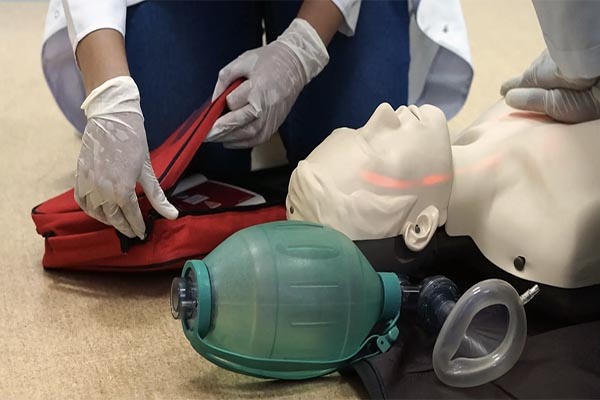
Getting your CPR certification is a vital step for anyone interested in healthcare, emergency response, or simply being prepared to save a life. But let’s be honest, passing the CPR certification test on your first try can feel a bit daunting. The good news? With the right approach, you can walk into your test with confidence and come out certified, no retakes needed.
If you’re searching for “CPR certification near me,” you’re already on the right path. Enrolling in a local CPR class will give you the hands-on experience and instruction necessary to succeed. To help you get there, here are some essential tips to pass your CPR certification test the first time.
Your choice of training provider can make a big difference. Look for CPR classes near you that offer:
Knowing what to expect on test day reduces anxiety and boosts performance. Generally, the CPR certification test includes:
Ask your instructor for details about the test format at your chosen CPR class. This way, you can tailor your preparation accordingly.
Passing the practical test requires proficiency in:
Practice these skills repeatedly during your class and at home if you have access to a CPR manikin or similar training tools.
Many CPR courses provide study guides or access to practice tests. Utilize these resources to reinforce your knowledge and identify areas needing improvement. This is especially helpful for the written portion of the certification test.
On test day:
If you’re unclear about any part of the test or skills, ask your instructor before or after the class. Clarifying doubts is key to confidence.
Passing the test is just the beginning. CPR guidelines change over time, so plan to renew your certification regularly, typically every two years, to stay current and prepared.
Passing your CPR certification test the first time is completely achievable with the right preparation and mindset. Start by finding quality CPR classes near you that provide hands-on learning and clear instruction. Practice the core skills, study thoroughly, and approach the test with confidence.
Ready to take the next step? Contact CPR Classes Near Me today to find a local course that fits your schedule and sets you up for success. Don’t wait, get certified and be prepared to save a life when it matters most.
Our primary goal is to ensure that you receive a top-quality CPR/First Aid certification. With our in-person training in Austin, you can learn CPR and BLS in just one class. Your presence is all that’s needed to continue with your lesson! During your session, you will complete all the live-training components necessary to ensure you receive your AHA Healthcare Provider certification card.
Our CPR Classes in Austin are discounted to $59.95 (saving you $20), and our CPR + First Aid Class is offered at $79.95 (also saving you $20). When looking for CPR Classes, ensure to check for the American Heart Association seal. Other sites might seem cheaper but frequently lack the official training credentials demanded by employers.
Upon successful completion of the course, you will obtain a CPR certification that is valid for two years. The AHA CPR certification is recognized with the highest acceptance rate among employers nationwide.
Indeed! Enroll in any CPR Certification Austin BLS course to extend your certification for an additional two years. The in-person BLS course and the Renewal Class are identical.
Anyone capable of completing the course independently should consider pursuing CPR training and CPR Certification. There is no minimum age restriction for obtaining a CPR certification in Austin through the American Heart Association (AHA)..
CPR training needs to be carried out in person to guarantee its effectiveness. Our experienced instructors offer an engaging and dynamic learning experience. Typically, employers do not recognize CPR certifications that are obtained solely through online courses.
All authorized American Heart Association training centers are obligated to display the entire video. After a three-hour session with CPR Classes Near Me Austin, your BLS CPR eCard will be promptly issued by the instructor on the same day!